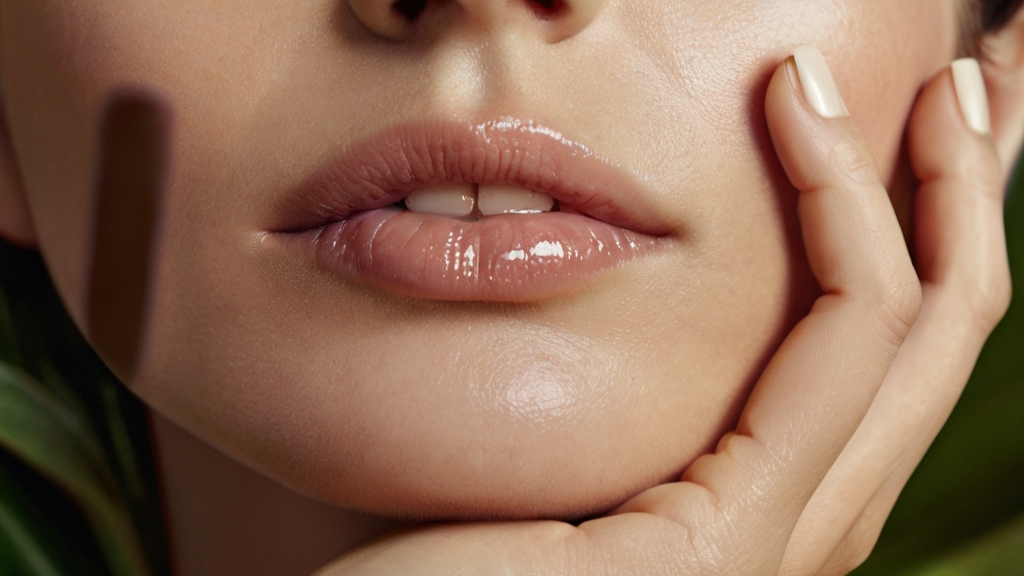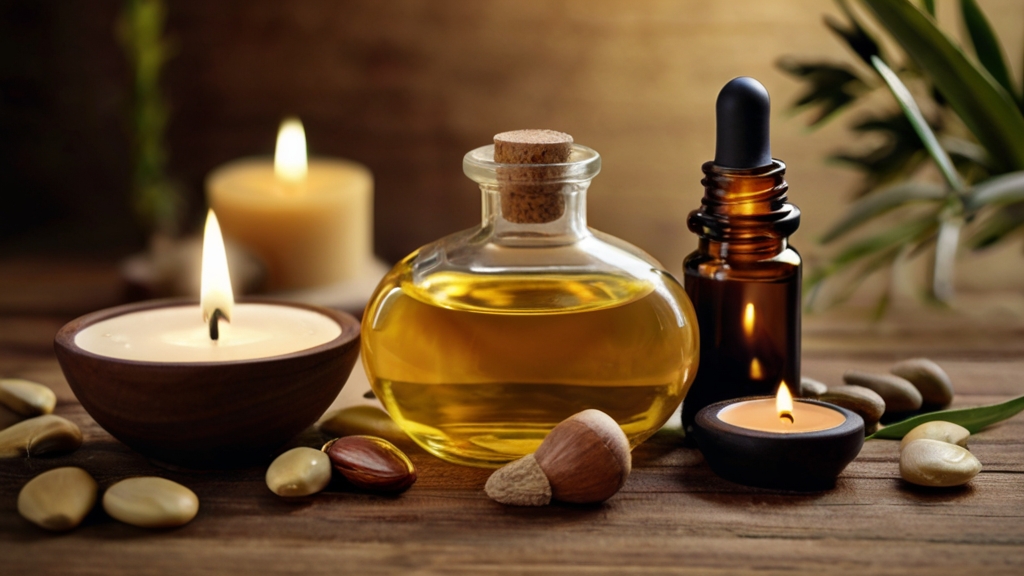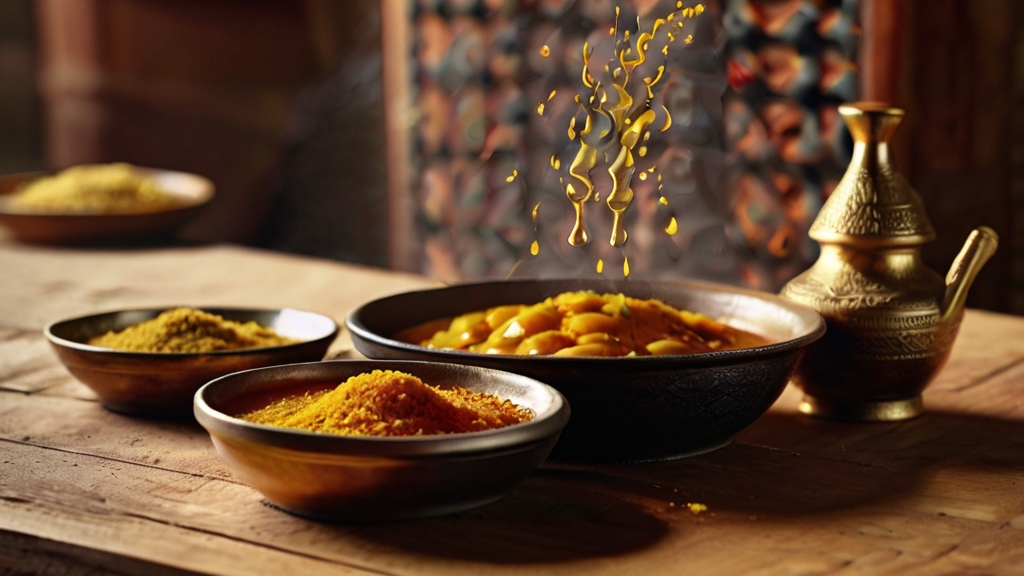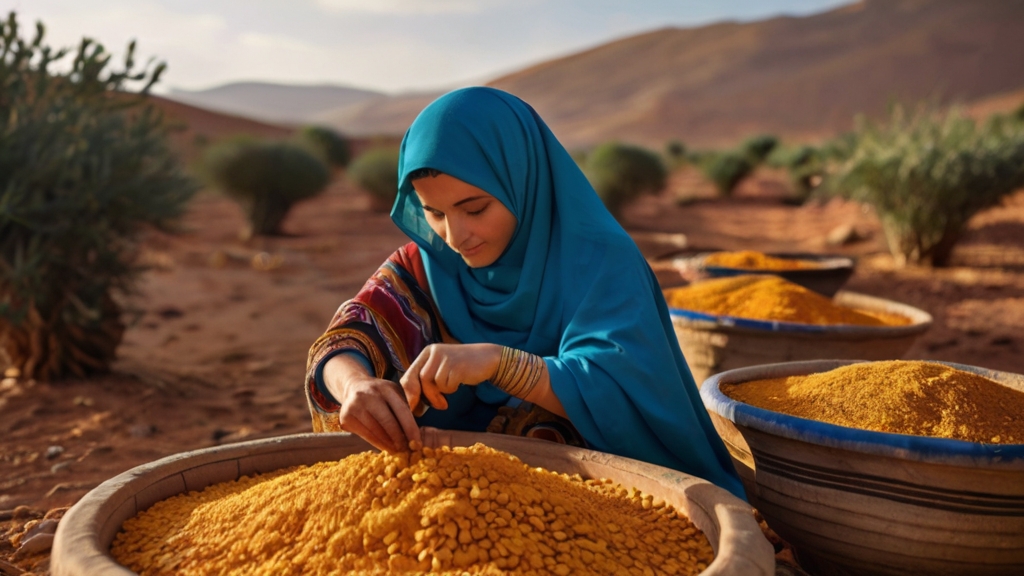
Amira Benhima
A passionate advocate for holistic wellness and natural beauty, is an accomplished author specializing in the benefits and uses of Argan oil, with years of experience exploring its wonders.
Key Takeaways
Did you know that Argania Spinosa oil has been used for centuries in traditional practices? This oil, derived from the seeds of the Argan tree, has a rich history of therapeutic, cosmetic, and culinary uses. From nourishing the skin to enhancing the health of your hair, Argan oil has been cherished for its natural properties. But that’s not all – there’s a whole world of traditional applications that await your discovery. So, let’s embark on a journey to explore the fascinating and diverse uses of Argania Spinosa oil, and uncover the secrets of this ancient treasure.- Argania Spinosa Oil has numerous skincare and hair care benefits, including hydration, moisturization, and protection against free radicals.
- It has therapeutic applications and potential health benefits, such as treating skin conditions, regulating blood sugar levels, and promoting wound healing.
- Argania Spinosa Oil can be used in culinary dishes to enhance flavors and improve heart and digestive health.
- The oil holds historical and cultural significance in Moroccan traditions, and its use in rituals and skincare routines helps preserve cultural heritage.
Skincare Benefits
 Argan oil is a multi-purpose skincare ingredient known for its moisturizing, nourishing, and anti-aging properties. This beauty oil has been used for centuries in traditional practices for its therapeutic effects on the skin. One of the key skincare benefits of argan oil is its ability to hydrate and moisturize the skin. Its high content of essential fatty acids, such as linoleic acid and oleic acid, helps to replenish and lock in moisture, leaving your skin soft, smooth, and supple.
Not only does argan oil provide intense hydration, but it also has remarkable wound healing properties. The oil’s anti-inflammatory properties help to reduce inflammation and soothe irritated skin. It can accelerate the healing process of wounds, cuts, and burns, making it an excellent natural remedy for minor injuries.
Another notable benefit of argan oil is its antioxidant properties. The oil contains high levels of vitamin E and other antioxidants that protect the skin from free radicals, which can cause premature aging and damage. By neutralizing these harmful molecules, argan oil helps to maintain the skin’s youthful appearance and prevent the formation of wrinkles and fine lines.
In addition to its skincare benefits, argan oil is also beneficial for hair care. It can nourish and strengthen the hair follicles, promoting healthy hair growth. The oil’s moisturizing properties also help to combat dryness and frizz, leaving your hair shiny and manageable.
While there are claims that argan oil can reduce stretch marks and treat acne, scientific evidence supporting these claims is limited. It is important to approach these assertions with caution and consult with a healthcare professional before relying solely on argan oil for these specific concerns.
Argan oil is a multi-purpose skincare ingredient known for its moisturizing, nourishing, and anti-aging properties. This beauty oil has been used for centuries in traditional practices for its therapeutic effects on the skin. One of the key skincare benefits of argan oil is its ability to hydrate and moisturize the skin. Its high content of essential fatty acids, such as linoleic acid and oleic acid, helps to replenish and lock in moisture, leaving your skin soft, smooth, and supple.
Not only does argan oil provide intense hydration, but it also has remarkable wound healing properties. The oil’s anti-inflammatory properties help to reduce inflammation and soothe irritated skin. It can accelerate the healing process of wounds, cuts, and burns, making it an excellent natural remedy for minor injuries.
Another notable benefit of argan oil is its antioxidant properties. The oil contains high levels of vitamin E and other antioxidants that protect the skin from free radicals, which can cause premature aging and damage. By neutralizing these harmful molecules, argan oil helps to maintain the skin’s youthful appearance and prevent the formation of wrinkles and fine lines.
In addition to its skincare benefits, argan oil is also beneficial for hair care. It can nourish and strengthen the hair follicles, promoting healthy hair growth. The oil’s moisturizing properties also help to combat dryness and frizz, leaving your hair shiny and manageable.
While there are claims that argan oil can reduce stretch marks and treat acne, scientific evidence supporting these claims is limited. It is important to approach these assertions with caution and consult with a healthcare professional before relying solely on argan oil for these specific concerns.
Hair Care Remedies
 To achieve lustrous and healthy hair, incorporating the nourishing benefits of argan oil into your hair care routine is essential. Argan oil, derived from the Argania spinosa tree, has been used for centuries by traditional communities to maintain the health and beauty of their hair. The nutritional properties of argan oil make it a valuable ingredient in various hair care remedies. Here are three ways in which argan oil can benefit your hair:
To achieve lustrous and healthy hair, incorporating the nourishing benefits of argan oil into your hair care routine is essential. Argan oil, derived from the Argania spinosa tree, has been used for centuries by traditional communities to maintain the health and beauty of their hair. The nutritional properties of argan oil make it a valuable ingredient in various hair care remedies. Here are three ways in which argan oil can benefit your hair:
- Moisturizes and nourishes: Argan oil is rich in essential fatty acids, vitamins, and antioxidants that deeply moisturize and nourish the hair. It helps to repair damaged hair follicles and restore shine and softness. By incorporating argan oil into your hair care routine, you can prevent dryness, frizz, and breakage, leaving your hair looking healthy and vibrant.
- Strengthens and promotes growth: The nutrients present in argan oil strengthen the hair shaft, making it less prone to breakage and split ends. Regular use of argan oil can stimulate hair growth and improve overall hair health. It also helps to protect the hair from environmental damage and heat styling tools, allowing your hair to grow longer and stronger.
- Soothes scalp and reduces dandruff: Argan oil has anti-inflammatory properties that can soothe an irritated scalp, reduce itchiness, and alleviate dandruff. It helps to balance the scalp’s natural oil production, promoting a healthier environment for hair growth. By massaging argan oil into your scalp regularly, you can maintain a clean and nourished scalp, which is essential for healthy hair.
Therapeutic Applications
 As we explore the therapeutic applications of argan oil, we will uncover its potential for treating various diseases, particularly skin and subcutaneous conditions, building upon its rich history and traditional uses. Argan oil, derived from the seeds of the Argania spinosa tree, has been used for centuries in traditional medicine by the local population. Its medicinal properties have made it a valuable ingredient in the treatment of various ailments.
Argan oil’s therapeutic benefits can be attributed to its unique composition, which includes essential fatty acids, antioxidants, and vitamins. These components contribute to its potential for treating skin and subcutaneous conditions such as acne, eczema, and psoriasis. The oil’s anti-inflammatory properties help reduce redness, swelling, and itching associated with these conditions, while its moisturizing effect helps nourish and hydrate the skin.
To further illustrate the therapeutic applications of argan oil, let’s take a closer look at its potential health benefits in a table format:
As we explore the therapeutic applications of argan oil, we will uncover its potential for treating various diseases, particularly skin and subcutaneous conditions, building upon its rich history and traditional uses. Argan oil, derived from the seeds of the Argania spinosa tree, has been used for centuries in traditional medicine by the local population. Its medicinal properties have made it a valuable ingredient in the treatment of various ailments.
Argan oil’s therapeutic benefits can be attributed to its unique composition, which includes essential fatty acids, antioxidants, and vitamins. These components contribute to its potential for treating skin and subcutaneous conditions such as acne, eczema, and psoriasis. The oil’s anti-inflammatory properties help reduce redness, swelling, and itching associated with these conditions, while its moisturizing effect helps nourish and hydrate the skin.
To further illustrate the therapeutic applications of argan oil, let’s take a closer look at its potential health benefits in a table format:
| Health Benefit | Description | Biological Properties |
|---|---|---|
| Treatment of Diabetes | Argan oil has been found to have potential anti-diabetic properties, helping to regulate blood sugar levels. | Phytochemical analysis has revealed the presence of bioactive compounds with hypoglycemic effects. |
| Anti-Aging | The antioxidants in argan oil help neutralize free radicals, reducing signs of aging such as wrinkles and fine lines. | The oil’s high vitamin E content promotes collagen production and improves skin elasticity. |
| Wound Healing | Argan oil’s antibacterial and anti-inflammatory properties make it effective in wound healing. | Studies have shown that the oil accelerates the healing process and enhances tissue regeneration. |
| Hair Growth | Argan oil nourishes the scalp and hair follicles, promoting healthy hair growth. | The oil’s high vitamin E and fatty acid content helps improve blood circulation to the scalp and strengthens hair follicles. |
Culinary Traditions
 Explore the rich culinary traditions associated with Argan oil. Discover the unique flavor profiles and pairings that make it a versatile ingredient in Moroccan cuisine and modern gourmet dishes. Immerse yourself in traditional Moroccan recipes that incorporate Argan oil, and experience the culinary health benefits that have made it a staple in Mediterranean cooking.
Explore the rich culinary traditions associated with Argan oil. Discover the unique flavor profiles and pairings that make it a versatile ingredient in Moroccan cuisine and modern gourmet dishes. Immerse yourself in traditional Moroccan recipes that incorporate Argan oil, and experience the culinary health benefits that have made it a staple in Mediterranean cooking.
Flavor Profiles and Pairings
Argan oil’s nutty, rich, and slightly sweet flavor profile makes it a versatile ingredient in Moroccan cuisine. Its unique taste adds depth and complexity to a variety of dishes. Here are three flavor profiles and pairings to highlight the culinary traditions of Argan oil:- Moroccan Tagines: Argan oil pairs beautifully with the slow-cooked stews known as tagines. Its nutty flavor enhances the rich spices and tender meat, creating a harmonious blend of flavors.
- Couscous: Argan oil is a perfect companion for couscous, a staple in Moroccan cuisine. Drizzle it over the fluffy grains to add a luscious nuttiness that complements the earthy flavors of vegetables and aromatic spices.
- Salads: Argan oil brings a delightful richness to salads, especially when combined with lemon juice and a touch of honey. Its nutty undertones balance the freshness of greens and the tartness of citrus, creating a well-rounded and vibrant dish.
Traditional Moroccan Recipes
Traditional Moroccan recipes showcase the rich culinary heritage of Morocco, incorporating a variety of flavors and techniques that have been passed down through generations. Argan oil, derived from the Argania spinosa tree, is a key ingredient in many traditional Moroccan dishes. Its unique nutty flavor and nutritional value make it a popular choice for enhancing the taste of both sweet and savory recipes. One popular traditional Moroccan sweet delicacy that features argan oil is Amlou, a mixture of ground roasted almonds, honey, and argan oil. This decadent spread is often enjoyed with home-baked bread and Moroccan tea for breakfast. Argan oil is also used in various savory dishes, adding depth and richness to tagines, couscous, and salads. The versatility and health benefits of argan oil have made it an essential part of Moroccan cuisine for centuries.| Traditional Moroccan Recipes | Description |
|---|---|
| Amlou | A sweet delicacy made from ground roasted almonds, honey, and argan oil. |
| Tagine | A slow-cooked stew made with meat, vegetables, and aromatic spices, often flavored with a drizzle of argan oil. |
| Couscous with Argan Oil Dressing | A traditional Moroccan dish made with steamed couscous, vegetables, and a tangy dressing of argan oil, lemon juice, and herbs. |
Culinary Health Benefits
With its rich culinary heritage and the incorporation of traditional Moroccan recipes, it is only natural to delve into the culinary health benefits that these dishes offer. Argan oil, derived from the Argania spinosa tree, is widely used in Moroccan cuisine due to its unique flavor and health properties. Here are three key benefits of incorporating argan oil into your cooking:- Boosts Heart Health: Studies have shown that argan oil’s high content of monounsaturated fats can help lower bad cholesterol levels and reduce the risk of heart disease.
- Supports Digestive Health: Argan oil is rich in antioxidants and anti-inflammatory compounds, which can help soothe digestive issues and improve overall gut health.
- Enhances Nutrient Absorption: The presence of vitamin E in argan oil aids in the absorption of fat-soluble nutrients, such as vitamins A, D, E, and K, promoting better nutrient utilization in the body.
Historical Significance
 Centuries of use and a scarcity that makes it the rarest vegetable oil have contributed to the historical significance of Argan oil. This oil, derived from the seeds of the Argania spinosa tree, has been utilized for a wide range of traditional uses throughout history. From its origins in the southwestern region of Morocco, Argan oil holds great cultural and ethnobotanical importance to the local communities of Chtouka Ait Baha and Tiznit.
The historical significance of Argan oil can be attributed to its various properties and applications. With its rich phytochemistry, this oil possesses numerous biological and medicinal benefits. Traditionally, it has been used for skin treatment, helping to moisturize and nourish the skin. Its high content of fatty acids, antioxidants, and vitamin E makes it an effective natural remedy for dry skin, acne, and aging.
Furthermore, Argan oil has been valued for its culinary and cosmetic uses, both in traditional practices and in modern applications. It has a unique nutty flavor, making it a popular ingredient in Moroccan cuisine. Additionally, its versatility extends to the cosmetic industry, where it is commonly found in hair and skincare products due to its hydrating and rejuvenating properties.
The historical significance of Argan oil extends beyond its traditional uses. In recent years, this oil has gained global recognition, becoming highly sought after in the Western cosmetic and culinary industries. The establishment of Argan oil cooperatives by local communities has played a crucial role in preserving the Argan tree and its ecosystem, further emphasizing its historical and cultural significance.
Centuries of use and a scarcity that makes it the rarest vegetable oil have contributed to the historical significance of Argan oil. This oil, derived from the seeds of the Argania spinosa tree, has been utilized for a wide range of traditional uses throughout history. From its origins in the southwestern region of Morocco, Argan oil holds great cultural and ethnobotanical importance to the local communities of Chtouka Ait Baha and Tiznit.
The historical significance of Argan oil can be attributed to its various properties and applications. With its rich phytochemistry, this oil possesses numerous biological and medicinal benefits. Traditionally, it has been used for skin treatment, helping to moisturize and nourish the skin. Its high content of fatty acids, antioxidants, and vitamin E makes it an effective natural remedy for dry skin, acne, and aging.
Furthermore, Argan oil has been valued for its culinary and cosmetic uses, both in traditional practices and in modern applications. It has a unique nutty flavor, making it a popular ingredient in Moroccan cuisine. Additionally, its versatility extends to the cosmetic industry, where it is commonly found in hair and skincare products due to its hydrating and rejuvenating properties.
The historical significance of Argan oil extends beyond its traditional uses. In recent years, this oil has gained global recognition, becoming highly sought after in the Western cosmetic and culinary industries. The establishment of Argan oil cooperatives by local communities has played a crucial role in preserving the Argan tree and its ecosystem, further emphasizing its historical and cultural significance.
Cultural Importance
 The cultural importance of argan oil lies in its historical significance and ritual applications. For centuries, argan oil has been an integral part of Moroccan culture, used in traditional medicine and authentic food preparation. Its production and sale have provided employment opportunities for women in rural areas, contributing to the livelihoods of local communities. The argan tree and its oil have become symbols of sustainability and biodiversity conservation efforts, playing a crucial role in the socio-economic and ecological life of the region.
The cultural importance of argan oil lies in its historical significance and ritual applications. For centuries, argan oil has been an integral part of Moroccan culture, used in traditional medicine and authentic food preparation. Its production and sale have provided employment opportunities for women in rural areas, contributing to the livelihoods of local communities. The argan tree and its oil have become symbols of sustainability and biodiversity conservation efforts, playing a crucial role in the socio-economic and ecological life of the region.
Historical Significance
Argan oil’s historical significance and cultural importance can be traced back to its origins as a rare and sought-after vegetable oil, sold by merchants in the Mediterranean region around the 12th century BC. This remarkable oil has captured the attention of people for centuries due to its unique properties and traditional uses. Here are three factors that contribute to the historical significance of Argan oil:- Scarcity: Argan oil is derived from the kernels of the Argania spinosa tree, an endemic species found only in southwest Morocco. The limited distribution of these trees adds to the rarity and value of the oil.
- Ethnobotanical Importance: Argan oil has been used by local communities for generations for its medicinal properties. It is deeply ingrained in Moroccan culture and traditions, making it an essential part of their heritage.
- Phytochemistry and Biological Properties: Scientific research has revealed the diverse range of bioactive compounds present in Argan oil. These compounds contribute to its antioxidant, anti-inflammatory, and moisturizing properties, further highlighting its historical significance.
Ritual Applications
With its deep-rooted cultural significance, Argan oil permeates the rituals and traditions of Moroccan communities, enhancing the authenticity and nutritional value of their cherished foods. Argan oil, derived from the seeds of the Argania spinosa tree, is not only a staple ingredient in traditional Moroccan cuisine but also holds significant ritual applications. This precious oil is used in various traditional recipes, adding a distinct nutty flavor and enriching the cultural heritage of the region. Furthermore, Argan oil’s medicinal properties make it a valued component of skincare rituals, with its phytochemical compounds offering nourishing and hydrating benefits. Moroccan communities have long recognized the biological properties of this oil, incorporating it into their rituals as a natural resource for skin treatment. By embracing the traditional use of Argan oil, these communities preserve their cultural practices while harnessing the healing power of this precious oil.Frequently Asked Questions
What Is the Traditional Use of Argan Oil?
Argan oil has a multitude of traditional uses that can benefit you in various ways. It is known for its beauty benefits, as it can nourish and moisturize your skin, making it look radiant. It is also great for hair care, treating dry scalp and promoting healthy and shiny locks. With its anti-aging properties, it can help reduce the appearance of wrinkles and fine lines. Additionally, it can be used as a nail treatment, healing cracked and brittle nails. Argan oil is even utilized in culinary dishes, adding a flavorful and nutritious touch. It can also be used as a massage oil, providing relaxation and soothing sore muscles. Lastly, it acts as a natural sunscreen, protecting your skin from harmful UV rays.What Is Argania Spinosa Used For?
Argania spinosa oil is used for a variety of purposes. It has numerous haircare benefits, such as strengthening hair and protecting against environmental damage. It also has skincare benefits, including nourishing properties and anti-aging effects. The oil’s healing properties make it ideal for moisturizing and treating the scalp. Additionally, it acts as a natural emollient, leaving your skin and hair feeling soft and hydrated. Overall, Argania spinosa oil is a versatile and beneficial ingredient for both hair and skincare routines.Why Do Moroccans Use Argan Oil?
Moroccans use Argan oil for a multitude of reasons. Firstly, the benefits of this oil for hair are incredible. It acts as a moisturizer, nourishing your hair from root to tip. Not only that, but Argan oil also plays a vital role in skincare, improving the health and appearance of your skin. It promotes nail health, treats acne, reduces wrinkles, and even improves scalp health. Additionally, Argan oil is a natural remedy for stretch marks and its antioxidant properties are truly remarkable. Lastly, it helps promote hair growth, making it an all-around superstar for your beauty needs.What Is a Moroccan Oil Used For?
Moroccan oil, also known as argan oil, is used for various purposes such as hair care, skincare, nail care, and culinary uses. It has been traditionally used by Moroccans for its nourishing, moisturizing, and anti-aging properties. Additionally, argania spinosa oil is used in traditional medicine to treat ailments like arthritis, eczema, and acne. With its high content of essential fatty acids and antioxidants, it promotes overall health and well-being.Related Articles
Traditional Argan Oil Uses by Natives
Discover the astonishing array of traditional Argan oil uses by natives, from culinary delights to medicinal wonders, that will leave you amazed and craving for more.
UV Absorption Rate of Argan Oil
Get ready to uncover the surprising truth about the UV absorption rate of Argan Oil, and how it could revolutionize your sun protection routine.
Berber Argan Oil Production Techniques
Discover the intricate 'P'rocesses behind Berber Argan oil production, and unravel the secrets to its exclusivity, cultural heritage preservation, and high value.


